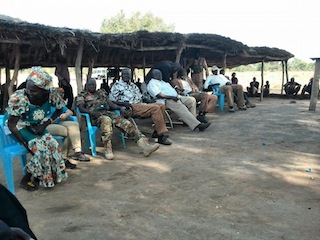Older people are excluded from humanitarian assistance in eastern Africa: reports
August 13, 2018 (NAIROBI) – Aid groups exclude older people, including those that live with disabilities during their emergency operations, reveal two new studies by the Humanitarian Policy Group of the Overseas Development Institute focusing on Ethiopia, Kenya, South Sudan and Uganda.

“They show that neglect is happening against a background of eroded social cohesion after years of conflicts and repeated, long droughts in East Africa, which have increasingly driven rural families to either urban areas or displacement camps,” says a statement released by HelpAge International.
Older people tend to be less physically mobile than the wider population, and often live with chronic illnesses and disabilities. When they are affected by disasters or conflict, these vulnerabilities are exacerbated.
Droughts lead to a scarcity of appropriate food for older people, it can leave them weak and reduce their mobility and they increase their dependence on others.
During conflicts, older people who form a large proportion of those left behind have difficulties to accessing information, services and assistance. Also; they are at greater risk of abuse, physical and sexual violence, neglect and theft.
“Older people with disabilities reported receiving less support from their families during displacement as resources were scarce and families grew tired of caring for them,” according to the study Older people in displacement: falling through the cracks of emergency responses. This loss of “power, dignity and respect” can have a harmful impact on older people’s psychological health.
“Continued conflicts and the frequent cycle of droughts in East Africa dismantle communities’ power and support structures, breaking down older people’s traditional positions of influence and power within communities,” said Dr Prafulla Mishra, Africa Regional Director at HelpAge.
The reports pointed out at the important role older people play as mediators and carers in their societies saying they have unique skills, experiences and a lifetime of knowledge.
Humanitarian agencies should recognise these important roles and utilise the invaluable knowledge older people have from experiencing prior disasters said the reports adding “This could strengthen older people’s role in the community during emergencies, rather than see it weaken, and improve the overall quality of the programming”.
(ST)
